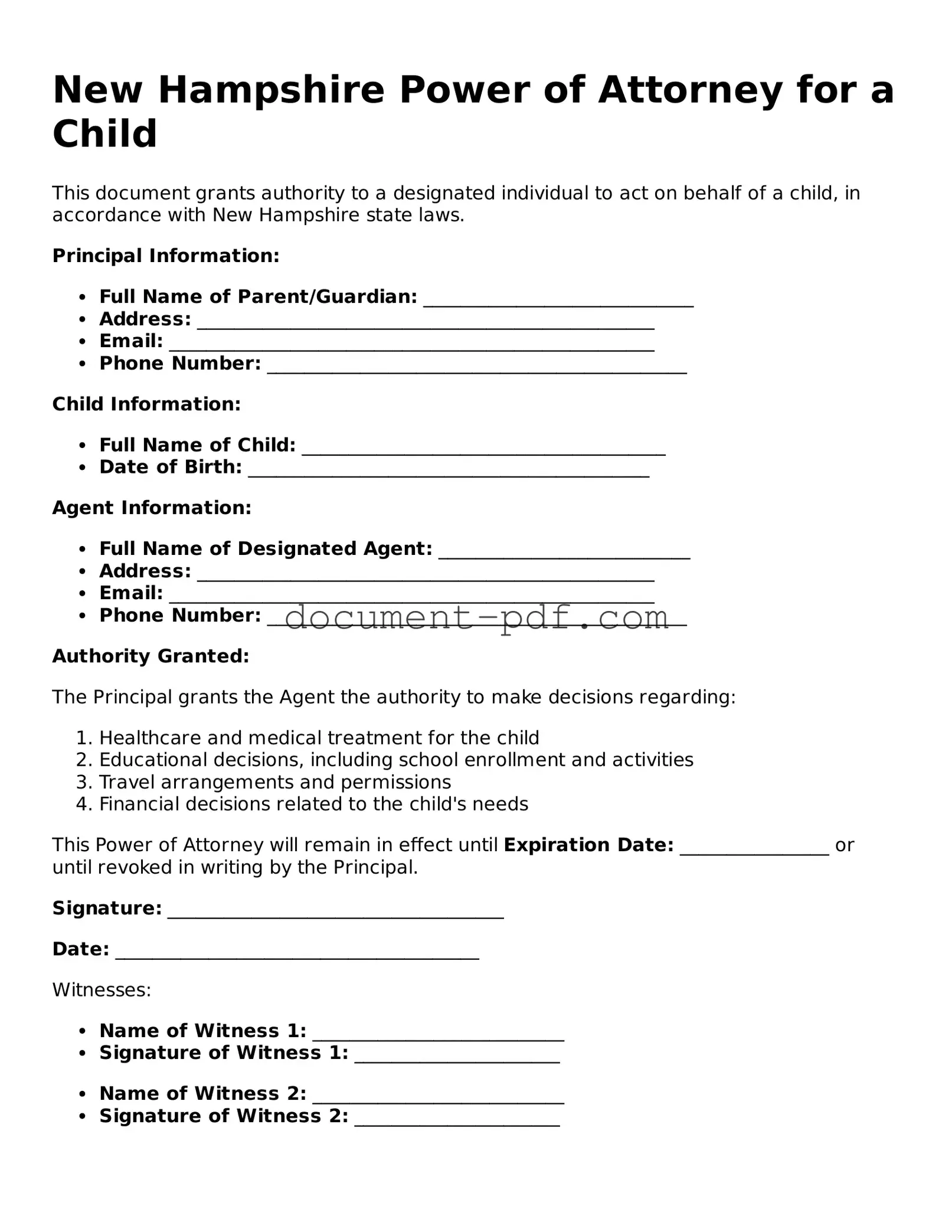Attorney-Verified New Hampshire Power of Attorney for a Child Template
The New Hampshire Power of Attorney for a Child form is a legal document that allows a parent or legal guardian to grant another adult the authority to make decisions on behalf of their child. This form is essential for ensuring that a trusted individual can manage the child's care and welfare in the parent's absence. It is important to complete this form accurately to avoid potential complications in caregiving situations.
To fill out the form, click the button below.
Access Power of Attorney for a Child Editor Here

Attorney-Verified New Hampshire Power of Attorney for a Child Template
Access Power of Attorney for a Child Editor Here
Finish the form without slowing down
Edit your Power of Attorney for a Child online and download the finished file.
Access Power of Attorney for a Child Editor Here
or
Click for PDF Form
